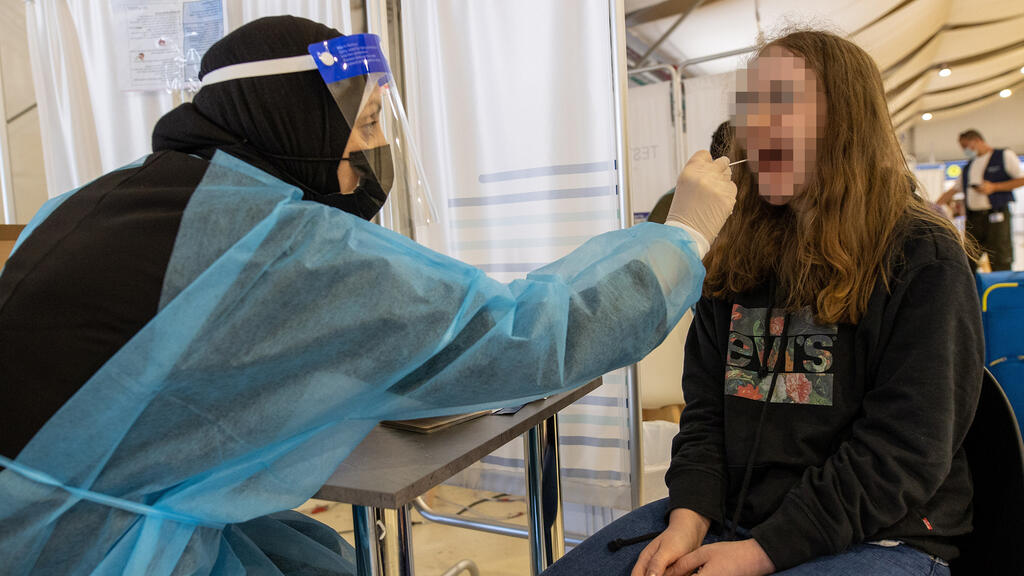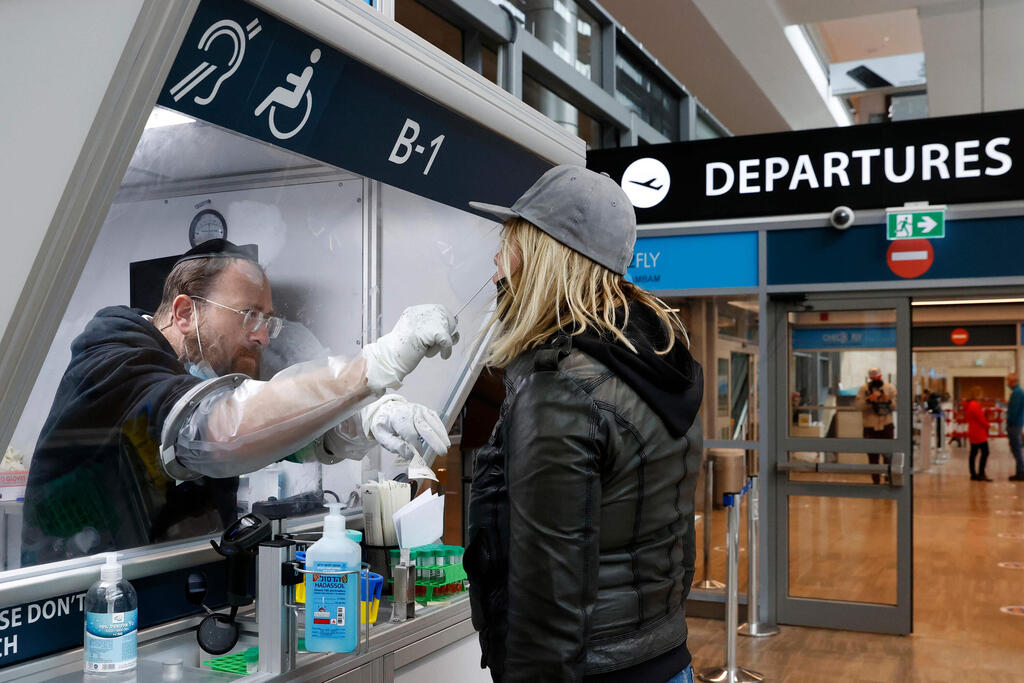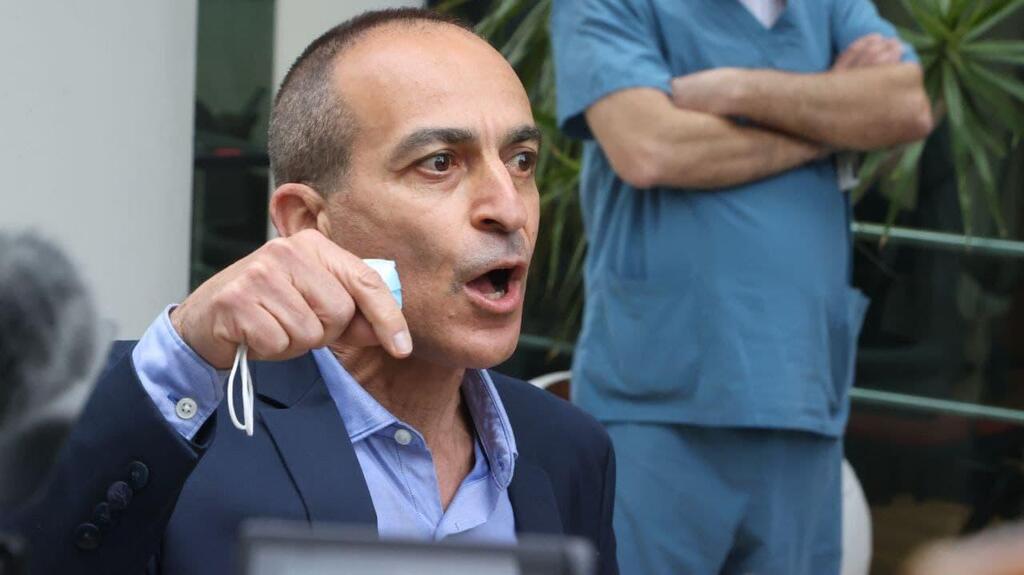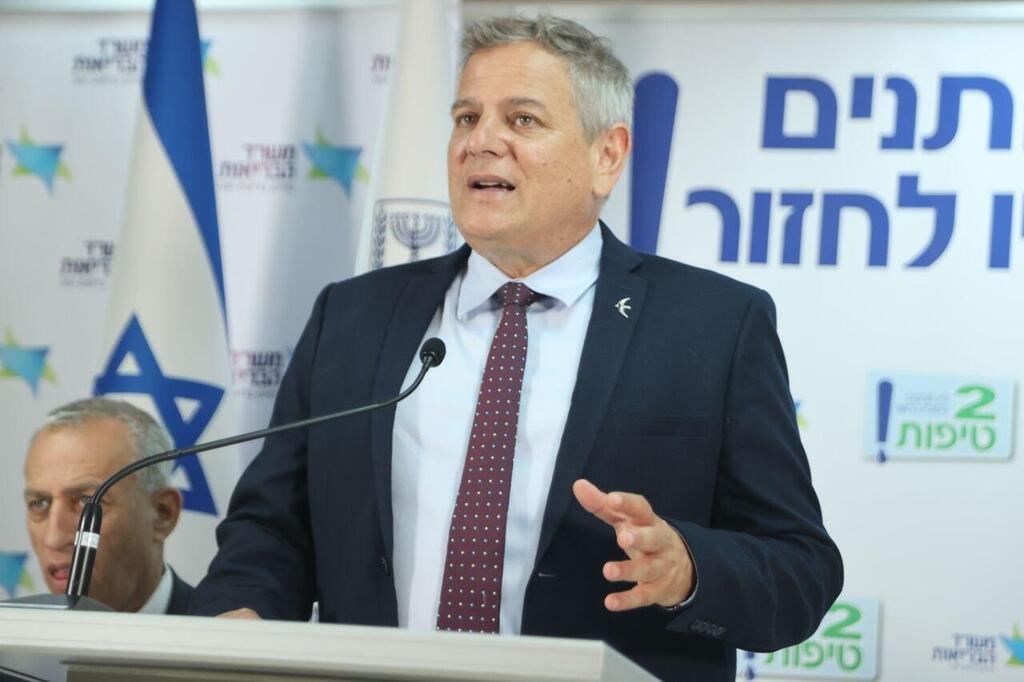Getting your Trinity Audio player ready...
Israel is mulling scrapping mandatory coronavirus tests for travelers upon arrival at the Ben Gurion Airport, for the first time since the start of the pandemic.
The Health Ministry held a situation assessment Wednesday to discuss the possibility of lifting one of Israel's last coronavirus restrictions.
According to estimations, the tests will be scrapped in the upcoming weeks, and the health officials consider whether to continue conducting the tests, but on an arbitrary basis, although some officials object to the move.
Some health officials believe the coronavirus isn't as dangerous as in the past, and it is time to cancel the restriction the way it has been done in many other countries.
"Many Israelis who travel abroad these days are surprised to find out that COVID is almost gone," said Prof. Ronni Gamzu, director of Ichilov Hospital. "Israel should do the right thing and remove more restrictions.
"Almost none of the countries require proof of vaccination, Green Pass or PCR and antigen test results [upon arrival]. There is no need to continue conducting tests on healthy people upon arrival to the country, or sending tens of thousands of people into quarantine," Prof. Gamzu added.
Gamzu also said that there is no reason Israelis should keep paying for PCR tests if it is no longer done in Europe, the United States, and the rest of the Western world.
Currently, Israel remains one of the very few countries across the globe that requires all travelers to perform a PCR test upon arrival. Since 2022, some two million people entered Israel and paid between NIS 63 to 100 for a test, but the Health Ministry and Femi Premium Ltd - which performs the tests at the airport - refuse to share profit data.
Meanwhile, at the beginning of the week, two new COVID variants were detected at the Ben Gurion Airport, BA.4, and BA.5, both offshoots of the Omicron strain.
As a result, other health experts believe it is too early to cancel the tests. "Israel has an advantage that it has only one main port of entry, which is monitored," Prof. Cyrille Cohen, an expert on immunology from Bar-Ilan University said.
"We have seen that our ability to halt entry or to monitor the people who arrive in Israel is much better than that of other countries. Do we have to keep testing forever? No, I don't think so. But I think as long as there are no new dangerous variants, it is a good idea to switch to periodic tests," he added.
"I'm not entirely certain about the cancellation at this point, because I still don't feel we are out of the woods just yet. If we see that over the few next weeks no new variants pop up around the world, we should cancel the PCR tests, but right now, there is still a lot of uncertainty," Prof. Cohen said.
On Tuesday, Health Minister Nitzan Horowitz addressed the calls of health experts to cancel the tests but refrained from saying if or when it will happen. "I trust the health experts and I always listen to their advice," he said.
"The tests are helpful, just earlier this week we detected two new variants. We always consider the extent of the PCR tests, their need, expense, and the resources involved. At the moment, we will continue to conduct tests. I think throughout the COVID-19 pandemic we changed restrictions according to the virus's behavior, and scrapped unnecessary mandates. Just recently, we canceled the mask mandate, and if necessary we will further examine the issue of the tests."
In response to the high prices of the PCR tests, Femi Premium, which provides them, said: "The company follows the policies that are dictated by the State of Israel. Since 2022, and until the end of March, the test array at Ben Gurion Airport operated in accordance with the previous terms, and all the payments were transferred to the Health Ministry when the majority of the payments were allocated to the laboratories.
"Femi has reduced the PCR tests' cost to NIS 63, and according to estimations some 750,000 people will land in Israel in April, with the total cost of tests of 47 million," the company added.





